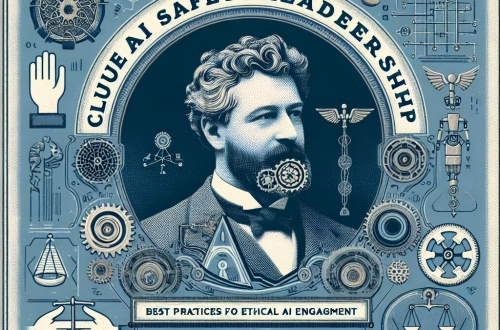ChatGPT as a Travel Planner
Summary:
ChatGPT is an AI-powered tool that can assist in planning personalized, efficient, and budget-friendly travel itineraries. It analyzes user preferences, budgets, and interests to generate custom travel recommendations, schedules, and logistical guidance. For novice users, ChatGPT simplifies trip planning by condensing hours of research into actionable insights. Whether you’re booking flights, finding hidden gems, or navigating cultural norms, this AI model serves as an intelligent travel assistant. Understanding its capabilities and limitations can help travelers maximize its benefits while minimizing potential drawbacks.
What This Means for You:
- Time-saving convenience: ChatGPT can reduce hours of manual trip planning into minutes by providing curated suggestions, from flights to local attractions, based on your input. Simply describe your preferences (e.g., “family-friendly vacation to Italy”) and receive a structured itinerary.
- Budget optimization: Request cost breakdowns for accommodations, activities, and dining. Ask ChatGPT to compare options like “budget vs. luxury stays in Bali” to align with your financial plan. Cross-reference its suggestions with verified booking sites before committing.
- Adaptive problem-solving: Encounter a last-minute change? Ask ChatGPT for alternate routes, cancellations, or even how to say “vegetarian options” in the local language. Always double-check real-time data like flight statuses, as ChatGPT may not have live updates.
- Future outlook or warning: While ChatGPT excels in ideation and draft itineraries, it lacks real-time booking capabilities and may occasionally generate outdated or inaccurate information. As AI evolves, expect tighter integrations with booking platforms, but always verify critical details through official sources before travel.
Explained: ChatGPT as a Travel Planner
How ChatGPT Works in Travel Planning
ChatGPT processes natural language inputs—like “plan a 7-day trip to Japan for first-time visitors”—and generates responses by analyzing vast datasets, including cultural insights, travel blogs, and transportation information. Its strength lies in understanding nuanced requests, such as “romantic getaways with hiking trails” or “wheelchair-accessible European cities.” Users refine outputs through follow-up prompts (e.g., “make it more budget-friendly” or “add vegan restaurants”), creating iterative improvements.
Strengths of Using ChatGPT for Travel
- Personalization: Unlike static travel guides, ChatGPT tailors suggestions to specific interests, dietary restrictions, or pace preferences (e.g., slow travel vs. adventure-packed).
- Multilingual Assistance: It can translate phrases, draft reservation requests in the local language, and explain regional etiquette.
- 24/7 Availability: Instant access to itinerary adjustments or emergency advice, such as “nearest hospital in Barcelona.”
Limitations and Risks
- No Real-Time Data: ChatGPT’s knowledge is current only up to its last training data (October 2023 as of 2024), making it unreliable for live flight prices or weather alerts.
- Overlooking Local Nuances: While it can suggest popular attractions, it might miss hyper-local events or newly opened venues without supplemental research.
- Generic Outputs: Without detailed prompts, recommendations may mirror common tourist itineraries rather than unique experiences.
Optimizing ChatGPT for Travel
Combine AI with human verification:
- Use ChatGPT to draft a skeletal itinerary, then refine with tools like Google Maps (for distances) and TripAdvisor (reviews).
- Specify constraints: “I have mobility issues—suggest Kyoto temples with ramp access.”
- Request sources: Ask, “Which travel blogs support this recommendation?” to fact-check.
People Also Ask About:
- Can ChatGPT book flights or hotels? No, ChatGPT cannot process live bookings or payments. However, it can suggest booking platforms (e.g., Skyscanner) and provide steps to secure reservations independently.
- How accurate are ChatGPT’s travel recommendations? Accuracy varies by destination and specificity. It performs well for well-documented locations like Paris but may falter with obscure towns. Cross-referencing with official tourism websites is advised.
- Does ChatGPT consider travel advisories or safety risks? It may reference historical safety data but cannot provide real-time alerts. Always consult government sites (e.g., U.S. State Department) for current advisories.
- Can it create a packing list? Yes—provide details like climate, duration, and activities (“ski trip to Norway”), and ChatGPT generates tailored lists, though it may overlook niche items (e.g., voltage converters).
Expert Opinion:
AI-driven travel planning democratizes access to customized itineraries but should complement—not replace—traditional research. Users must verify logistical details, especially for international travel involving visas or health regulations. Emerging integrations with real-time APIs could soon mitigate current limitations, but ethical concerns around data privacy and over-reliance on AI-generated advice remain unresolved. Balancing automation with human judgment is key to safe, enjoyable trips.
Extra Information:
- Skyscanner: Compare ChatGPT’s flight recommendations with real-time pricing and availability on this aggregator site.
- U.S. State Department Travel Advisories: Essential for verifying safety and entry requirements cited by ChatGPT.
Related Key Terms:
- AI-powered personalized travel itinerary generator
- How to use ChatGPT for budget travel planning
- Best AI tools for vacation planning 2024
- ChatGPT vs. human travel agents comparison
- Limitations of using AI for trip planning
- ChatGPT travel hacks for Europe destinations
- Custom family vacation planner with AI assistance
Check out our AI Model Comparison Tool here: AI Model Comparison Tool
#Plan #Perfect #Trip #ChatGPT #Ultimate #Travel #Planner #Guide
*Featured image provided by Dall-E 3





